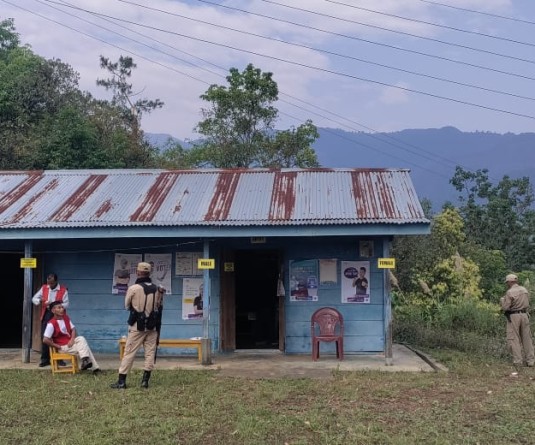
Dimapur | September 30 : A citizens’ conclave organized by the Naga Council on October 1 is expected to take stock of the ever unpredictable security situation of Dimapur and find remedies thereof, if any. Chief on the agenda of the discussions, as was reported, will be the unabated rate of crime particularly relating to extortion, kidnapping and rape. The business community in particular, who have borne the brunt of the former two will be anxiously awaiting its outcome.
Expecting attendance from the who’s who of the social spectrum and open to all concerned members of public, the relevance of the meet will be no less historic. And the people will be expecting nothing less than a tangible and methodical mechanism to alleviate the existing security problem.
President of Naga Council Dimapur Savi Liegise was optimistic that something concrete will come out of the meeting. Hopefully, a new approach to dealing with the crimes facing Dimapur will be worked out, he said on the eve of the meeting on Friday evening. While declining to term it as historic, he said it will be nevertheless, significant for the future of Dimapur.
In the face of criticisms galore, the police nevertheless feel the involvement of the civil society and the general public is important, if crime is to be alleviated. Speaking with the Superintendent of Police, Dimapur, Z. Mero, he felt that the idea of community policing is very promising, only there need to be stringent guidelines defining their roles. On the matter of ‘bail’ obtained by the charge-sheeted criminals, he said that loose ends have to be tightened on the part of the police in ‘technical aspects’. He further reasoned that underneath the khaki uniform, they are like any other ordinary citizen with failings.
On a spiritual take, Huzo Mero, the NBCC’s Peace Affairs Director felt that the prevailing situation are the signs of a ‘spiritual fallout’ with many people overcome with greed. Here the church can play a big role by wholeheartedly taking up social issues starting from the sermons delivered at the pulpit.
It may be mentioned that in the months of July and September alone, three meetings were held, two of which were chaired by the Home Minister himself. At one of the meetings held as recent as September 17, the Home Minister had strongly pushed the case for formation of ‘community police’ made up of volunteers drawn from the civil community; aimed at assisting law enforcement agencies. This idea of involving the community in policing matters had already been proposed back in 2009 and apparently had taken shape in some localities but never took off in the way it was envisaged.
Expecting attendance from the who’s who of the social spectrum and open to all concerned members of public, the relevance of the meet will be no less historic. And the people will be expecting nothing less than a tangible and methodical mechanism to alleviate the existing security problem.
President of Naga Council Dimapur Savi Liegise was optimistic that something concrete will come out of the meeting. Hopefully, a new approach to dealing with the crimes facing Dimapur will be worked out, he said on the eve of the meeting on Friday evening. While declining to term it as historic, he said it will be nevertheless, significant for the future of Dimapur.
In the face of criticisms galore, the police nevertheless feel the involvement of the civil society and the general public is important, if crime is to be alleviated. Speaking with the Superintendent of Police, Dimapur, Z. Mero, he felt that the idea of community policing is very promising, only there need to be stringent guidelines defining their roles. On the matter of ‘bail’ obtained by the charge-sheeted criminals, he said that loose ends have to be tightened on the part of the police in ‘technical aspects’. He further reasoned that underneath the khaki uniform, they are like any other ordinary citizen with failings.
On a spiritual take, Huzo Mero, the NBCC’s Peace Affairs Director felt that the prevailing situation are the signs of a ‘spiritual fallout’ with many people overcome with greed. Here the church can play a big role by wholeheartedly taking up social issues starting from the sermons delivered at the pulpit.
It may be mentioned that in the months of July and September alone, three meetings were held, two of which were chaired by the Home Minister himself. At one of the meetings held as recent as September 17, the Home Minister had strongly pushed the case for formation of ‘community police’ made up of volunteers drawn from the civil community; aimed at assisting law enforcement agencies. This idea of involving the community in policing matters had already been proposed back in 2009 and apparently had taken shape in some localities but never took off in the way it was envisaged.




